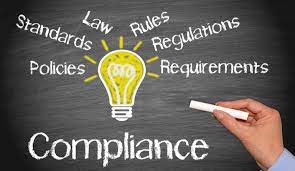DOJ’s New Compliance Requirements Mandate Increased Compliance and HR Cooperation (Part I of II)

The Justice Department is now taking on the role of marriage counselor. Not with individual couples, but with a critical corporate relationship – ethics and compliance and human resources. Normally, compliance and HR is a match made in heaven. Unfortunately, in all too many organizations, compliance and HR are having trouble getting along.
This should not be so. HR and compliance have many joint responsibilities and obligations. HR professionals can suffer from turf envy. They view themselves as uniquely qualified to handle what they term “HR issues,” conduct “HR investigations,” and protect the company’s culture (through surveys and other day-to-day interventions). Like many aspects of compliance and other corporate functions, there is overlap between HR and compliance responsibilities. Moreover, there are real and tangible benefits from cooperation and coordination. In fact, an effective HR and compliance partnership can leverage resources to ensure that each function operates properly.
The Justice Department, however, has a different perspective, probably developed from its continuing prosecution of companies that have suffered compliance breakdowns. It is likely that DOJ has observed first-hand the problems that stem from failures of HR and compliance to work together.
As an example, in 2020, DOJ’s revisions to its Evaluation of Corporate Compliance Program included a new provision requiring companies to provide compliance with access to data generated across the organization. This addition reflected DOJ’s impression that HR was not sharing all of its data with compliance and tended to resist active cooperation and coordination.

DOJ’s recent additions to its Corporate Enforcement Policy and its Evaluation of Corporate Compliance Programs reflects again two distinct trends: first, the overall importance of HR to the achievement of a culture of ethics and compliance; and, second, that in many cases, HR continues to resist cooperation and coordination with compliance.
DOJ’s recent initiatives requiring companies to maintain a robust and enhanced investigation/root cause system, and implement a new “consequence management system” can only occur with active cooperation between HR and compliance.
The unmistakable message in the new Evaluation of Corporate Compliance Programs is just this – HR and compliance need to get along better and cooperate to address the specific elements required for a culture of ethics and integrity and a consequence management system.

DOJ has emphasized the importance of creating incentives and disincentives to enhance individual conduct and overall accountability. It is an admirable goal and, if implemented properly, should bring about positive behaviors. Under its new Section II.C, DOJ replaced the prior title with a new Section, Compensation Structures and Consequence Management. DOJ removed the term “disciplinary procedures,” and replaced it with “consequence management” in order to encompass its expectation that executives, managers and employees will operate under a new set of policies, including financial penalties resulting from clawbacks and deferred compensation schemes. Additionally, within this new Section, DOJ included a number of new mandates – many of which are basic requirements reflecting an important partnership between HR and compliance.
We will examine these in greater detail in Part II of this blog.















